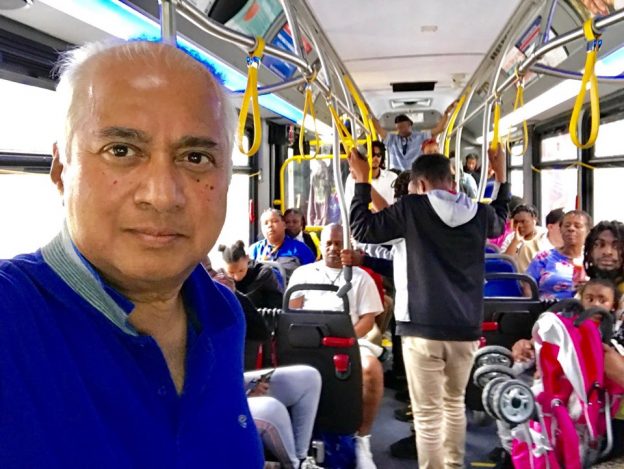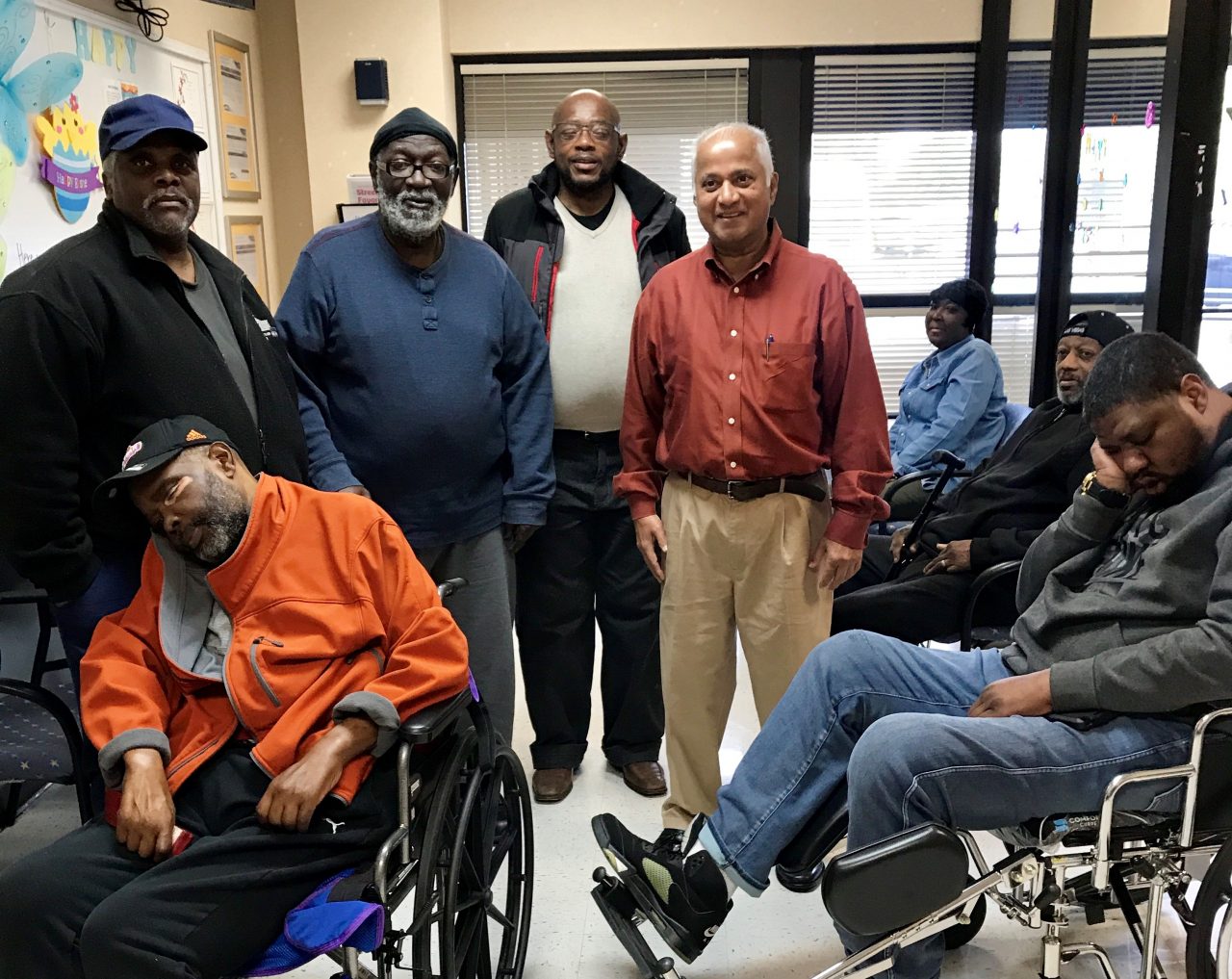Courtesy of Port Harlem Magazine
Over the decades, I have lived amongst many different types of people, in different parts of the world, with at least fifty different nationalities. However, until 2017, I had never lived in a majority African-American community. After being in the United States for 40 years, I debated about this move for more than one year.

Much of my decision to move into a Black neighborhood is grounded into my commitment to building a cohesive America where each one of the 323 million of us feels secure about his/her faith, race, and ethnicity, and cultural, political, and sexual orientation. My idea of America is shaped by the vision of our founding fathers, President Lincoln, Mahatma Gandhi, Martin Luther King Jr, President Obama, and the Quran.
Many conflicts and phobias cloud us that prevent us from being cohesive with our fellow human beings. One way to get out of the cloud is to get to know each other. Being different is OK. The Quran’s wisdom in 49:13 is central to my commitment, research, and pluralism activism. God says that he has deliberately created us into different communities, nations, races, and by extension, different religions.
Life has tested my faith many times. In 1985, I faced the wrath of homeowners in Rowlett, Texas. My homeowner friends became foes overnight because we contracted to build a new Ryland home for Jim and Mike, a gay couple in the Peninsula neighborhood. Eventually, the acceptance of their being a different type of couple came through education.
Back around 2005, I was on the Greater Dallas Home Builder’s Association’s government relations committee. We were appalled with the attitude of the City of Plano’s Planning and Zoning Committee. They were opposed to the zoning-in of apartments in the town as they wanted to keep the people with low income (Black people) out of the city.
Our question to them was: Where will the people who work at 7/11 live? Will they live near their workplace or way out someplace where they will be forced to further drain their income on transportation? Finally, they listened, and they zoned affordable apartments into the cityscape.
I had another experience that shaped my decision to move into my new neighborhood. In this case, Grand Homes took over the construction of Bent Tree Hills in North Dallas. Bent Tree home sales had dried up in the Texas sun as protesters publicly fought nearby against the construction of low-income (meaning Black) housing in the area and scared away would-be homebuyers. I was assigned to turn things around and appealed to the humble beginnings of each one of us; it worked.
Now, Muslims are treading on a similarly dangerous path of self-segregation by building “luxury ghettos” around mosques. It’s happening in places like Irving and Murphy, Texas.
They were opposed to the zoning-in of apartments in the town as they wanted to keep the people with low income (Black people) out of the city.
I hope to use these experiences and observations to build relationships with those who differ with others in creating a cohesive America. This will be good for all Americans. As Mother Teresa once advised, “If you want to make peace, you don’t talk to your friends. You talk to your enemies.” To that, I add, gossiping among friends won’t change the equation unless you talk with the ones in which you have problems.
In 2015, I visited the Congress Heights neighborhood in Washington, D.C. and liked it. Before then, I had interacted with Blacks, but never really considered living in a majority Black neighborhood. Since I teach, preach, and write about pluralism, I said to myself that moving into the neighborhood could be a God-given opportunity to live by example.
Now that I am living in Congress Heights, one of the things that irritate me are the taxi and Uber/Lyft drivers who suggest to my visiting friends that this place is not safe. One of the drivers even waited until I came out to receive my guest before he departed.
Nevertheless, I am enjoying my life in a majority Black community. On the Metro Green line train, I now watch along with the others, most of whom are Black, as most of the White folks get off at the Navy Yard, the last stop before crossing the Anacostia River, the fading, imagery racial and economic boundary.
Instead of advocating for Jim and Mike, apartment dwellers, and lower-income housing, I am acknowledging our God-given differences and advocating for pluralism, by example, every single day and every single hour. Pluralism is simply respecting the otherness of the other and accepting the God-given uniqueness of each one of us.
Note: Mike Ghouse is the author of the “American Muslim Agenda.” He is also a public speaker, interfaith wedding officiant, and the executive director of the Center for Pluralism in Washington, DC.

